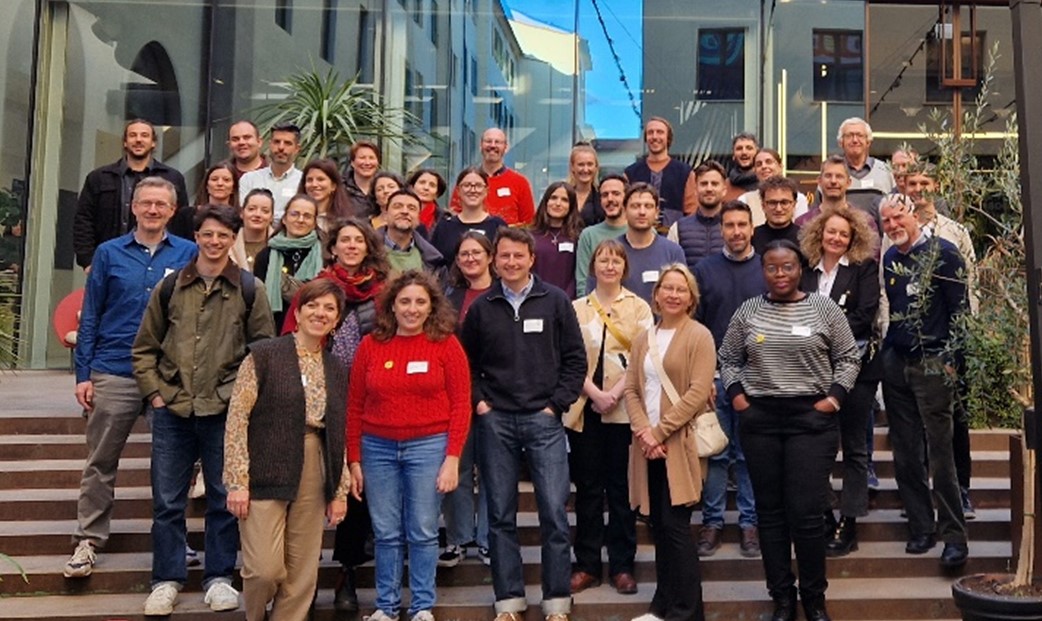
Embarking on a final thesis is a crucial moment for any university student, but for me this academic milestone has become an extraordinary journey. Choosing to collaborate with a cutting-edge European Union project, through my internship in Brussels at Moverim, I had the opportunity to look into the innovative and eco-conscious world of transforming human excreta into valuable bio-resources. This isn’t just a thesis; it’s a bold exploration of sustainability, circular economy, and real-world impact.
The opportunity to work within an EU-funded initiative like P2GreeN project provides a unique blend of academic rigor and practical application. P2GreeN brings together international expertise, advanced technologies, and a forward-thinking approach to tackling some of the world’s most pressing challenges. For me, it’s a chance to align academic pursuits with a project that has tangible outcomes and global relevance. From understanding the technical complexities of resource recovery to evaluating its economic feasibility, this experience is really transformative.
After reviewing all available documents, deliverables, and plans from the past two years of the project’s implementation to gain a comprehensive understanding, I had the opportunity to attend a consortium meeting where all 36 partners convened to exchange insights, collaborate on progress, and strategize future steps. The image below illustrates the consortium involved in this huge project.

Being part of the consortium meeting, which took place in Florence from November 13th to 15th 2024, was a unique opportunity to engage directly with the project’s key partners and gain deeper insights into its development. The three-day event provided a platform for collaboration, learning, and networking. It began with a warm welcome and a detailed update on the project’s progress. In fact, I had the chance to learn about the innovative work being done across the pilot regions and how specific support from various work packages (WPs) was being designed to meet their needs. One highlight was the session on the demonstration project involving urine-source separation, led by École nationale des ponts et chaussées. This session was eye-opening, showcasing practical applications that align closely with my thesis research. Additionally, the interactive discussions on environmental life cycle assessments (LCA) and business models offered insights into the challenges and opportunities associated with sustainable urban and regional systems.
Meeting the consortium members face-to-face was particularly inspiring. It allowed me to interact with experts from various fields, including governance, policy engagement, and innovative business model creation. Nevertheless, these conversations provided fresh perspectives and clarified many complex aspects of the P2GreeN project, which I aim to incorporate into my thesis. The event wasn’t just about formal sessions. Social activities like the city trip organized by IRIDRA gave everyone a chance to explore Florence, enriching the overall experience. Indeed, it highlighted the importance of networking and informal interactions outside of formal meeting sessions giving the opportunity to have discussions with other partners.
Furthermore, the consortium meeting in Florence emphasized not only formal presentations but also highly interactive workshops and brainstorming sessions. For instance, the interactive session led by pilot region partners fostered an open exchange of ideas, challenges, and potential solutions, enabling participants to collaboratively refine strategies for successful implementation. These discussions were instrumental in aligning diverse perspectives and setting actionable goals. Additionally, the team-building activity on the second day reinforced collaboration among members, strengthening the project’s foundation of shared vision and partnership. The event successfully mixed structured knowledge sharing with dynamic brainstorming environments, underscoring the importance of creativity and collaboration in driving sustainable change.
In conclusion, participating in P2GreeN through Moverim who is one of the 36 partners of this EU project funded by Horizon Europe, provided me with direct insight into the operations of a significant and ambitious project. I returned with a valuable knowledge and resources that will enhance the quality and depth of my thesis. I think that engaging with EU projects in R&D can enrich a thesis experience, providing unparalleled learning opportunities, and open doors to new ideas on technology innovation and rewarding career in sustainable innovation. I would encourage other students to know more about EU funded projects, and to get in contact with them, they are eager to communicate and disseminate their ideas and results.


